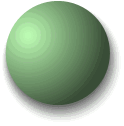Cumberland Lodge 1999
The Manifestations Of Mathematics
Date: 26-28 February 1999
 Weekend Programme
Weekend Programme
 Lecture Synopsis
Lecture Synopsis
 St. Catharine's Session Information
St. Catharine's Session Information
 Back
Back
Weekend Programme
FRIDAY 26th February
18:30 Bar / Reception
19:15 Dinner
20:15 Welcome
20:30 Dr. Colin Wright :- "Juggling"-'Theory And Practice'
22:00 Bar open until 23:00
SATURDAY 27th February
08:15 Breakfast
09:00 St. Catharine's Session
10:30 Coffee / Tea
11:00 Dr. Cyril Isenberg :- "Geometry Of Soap Bubbles"-'Blowing Bubbles'
12:30 Bar
13:00 Lunch
FREE AFTERNOON - FOOTBALL MATCH MATHSOC v MAXWELL
16:00 Tea
16:30 Mr William Hartston :- "Chess,Weather,Psychology,The Universe And Everything"
18:30 Bar
19:15 Dinner
20:30 Mr Nick MacKinnon :- "The Mathematical Structure Of Jokes"
22:00 Bar open until 23:00 then party in basement
SUNDAY 28th February
09:00 Breakfast until 09:45
10:25 Departure of those attaining church
10:30 Coffee / Tea
11:00 Professor Mike Lambrou :- "Archimedes $2,000,000 Manuscript"
13:00 Lunch
14:00 Mr Chris Wiscarson :-"Do Maths Degrees Work As a Career Tool?"
16:00 Departure
 TOP
TOP
Lecture Synopsis
Dr. C.Wright
Datawave Technology
"Juggling-Theory and Practice"
Juggling has fascinated many for centuries. Seemingly oblivious to gravity, the skilled practitioner can keep several objects in
the air at one time, and weave complex patterns that seem to defy analysis .
In this talk the speaker demonstrates a selection of the patterns and skills of juggling while at the same time developing a
simple way to describe those patterns that are known already, and a technique for discovering new ones.
Dr Cyril Isenberg
University Of Kent
"Geometry Of Soap Bubbles"-'Blowing Bubbles'
Soap bubbles have always fascinated the young. They are attracted by the perfectly formed spherical shells of liquid
produced every time one blows a bubble. The unexpected stability of these spheres has led scientists to study the properties
of films and bubbles. Much research has been carried out, and is presently being undertaken, by chemists, physicists,
mathematicians and biologists.
Some of these properties can be illustrated by dipping wire frameworks into soap solution. This can be demonstrated on a
grand scale with a huge tub of soap solution and large frameworks. The soap films and soap bubbles formed in the frameworks
have shapes that are a both spectacular and colourful. Their surfaces satisfy geometrical constraints that are a consequence
of a general minimisation principle in thermodynamics. In the simplest examples the soap film contained by a framework forms
, at equilibrium , a minimum area configuration.
This minimum area property can be applied to the solution of some mathematical problems of importance in the construction
of networks of roads, pipelines and cables. The simplest example is the minimum roadway linking two towns; the straight
line road. The more general problems are concerned with minimum length roadway configurations joining a number of towns.
Mr William Hartston
Daily Express Newspaper
"Chess, Weather, Psychology, The Universe And Everything"
Whether we are trying to predict the weather, beat the world chess champion, or catch a serial killer, mathematical models of
mental and physical processes are an essential part of scientific procedure. History shows, however, that such models tend
to be trusted far beyond reasonable levels of confidence. Above all, we should have learnt by now that any forecast based on
extrapolating past levels of progress are not to be trusted. From examples in computer chess, weather forecasting and
psychometrics, we may deduce the Three Laws of Applied Politico-Mathematics:
1) Research grants available for testing a theory grow exponentially with the desirability of the theory's predictions.
2) Any good theory should start with a conclusion.
3) Never trust a sentence containing the phrase: "Within Ten Years".
Mr Nick MacKinnon
Winchester College
"The Mathematical Structure Of Jokes"-'Joking Around'
The mathematical structure of jokes with an interlude of how to do better on the 'National Lottery'.
Professor Mike Lambrou
King's College London
"Archimedes $2,000,000 Manuscript"
This will be an informal talk on the story of a number of ancient mathematical manuscripts that have survived to the present day.
Some of them are extremely valuable and have occasionally changed hands under dubious circumstances!
Mr Chris Wiscarson
Chairman Of Lloyds TSB Life
"Do Maths Degrees Work As a Career Tool?"
What Shareholders Want
What Employees Want
What Families Want
What You Want
Does It All Add Up?
 TOP
TOP
St. Catharine's Session Information
The Manifestations Of Mathematics
Our daily life is permeated by mathematical thinking, which reaches into every aspect of our surroundings. Sometimes trivial,
sometimes unbelievably complex, it escapes our attention; we are just too used to it to notice it.
� Mathematics and Engineering.
In the art of engineering no problem can be solved without resorting to mathematics. Be it a simple problem of putting up
shelves or a complex problem of building a structure to with stand natural disasters. So what would we be living in today
without maths? Caves, mud huts or maybe even holes in the ground?
� Mathematics in Finance
Money may make the world go round but what makes the money go round? What gives money its value? What gives money
its meaning? Is it maths? And if this is so, since it's claimed that money is the root of all evil, does this mean mathematics is in
fact evil (!!!!)?
� Mathematics in the military
Maths has always had close links to the military from working out catapult projectors to cannon projectors and beyond.
Subjects like operation research have only come into exists (and developed) to help with the stores and the supplying (both
food and weapons) of troops for the armed services. Other subjects like discrete mathematics and encryption also have close
ties to the military. Therefore, does maths have blood on its hands?
During the middle of this century the world had been on a brink of nuclear holocaust as the two great super powers tried to
prove themselves better then the other. Can maths be blamed for the cold war? This may seem a ridiculous question but
consider the fact that most of both sides' deadly arsenals could never have be made or maybe not even conceived without the
mathematical foundation on which they are based (I.e. aircraft, nuclear weapons�.). Or can we just blame the aeronautical
engineers and the physicists for misusing our maths and take no responsibility for this?
� Mathematics in industry
Mathematical principles were at the heart of creation of steam engines, locomotives and steamships. Then based on breakthroughs
by the likes of Gauss, Cauchy and Riemann lead to advances by the likes of Maxwell (equations of electromagnetic propagation).
Which in turn lead to today's electrical and electronics industry. Modern conformal mapping and modern aerodynamics are
based on Cauchy's theory of analytic functions, and no airplane would be flying if the theory of analytic functions were still
unknown. Meaning no billion pound aircraft industry. In fact would there be any major industries without maths?
� Architecture and the Mathematical spirit
The house you occupy. Compare it with that of your ancestors. Your walls are not as thick; however, the house stands up as
solidly if not better than the older houses. Yet the materials employed are less solid or at most equal to the old materials such as
square-hewn stone. Has mathematics made man's/women's work simpler and his life more comfortable?
� Mathematics and Music
"Music is a secret arithmetical exercise and the person who indulges in it does not realise that he is manipulating numbers.
"-Leibniz .In fact a person playing the harpsichord is manipulating the logarithms.
1. The effect of a musical sound upon our ear depends mostly on its pitch.
2. Hearing two sounds simultaneously is equivalent to perceiving two numbers and a relationship between them.
3. Thus is rhythm nature's arithmetic?
� Mathematics and computers
Nowadays computers are as essential to modern society as food and water. Anything has or (seems) will have some microchip
in it. But what next? With the advent of mathematical subjects like Neural networks are we pushing the boundaries too far? Will the
microchips inherit the earth(because of maths)? Will the king's talking lifts not only go up and down physically but also emotionally?
Brave New World? Or, Blind love of maths (can it be done attitude instead of should it be done)?
Question: What would the world be like today without Maths?
Question: Is Maths an Art or a Science?
Question: Mathematics does it cause more problems then it solves?
Question: Is mathematics a destructive force on society?
Question: Is mathematics by nature incapable of describing real change?
 TOP
TOP
![]() St. Catharine's Session Information
St. Catharine's Session Information